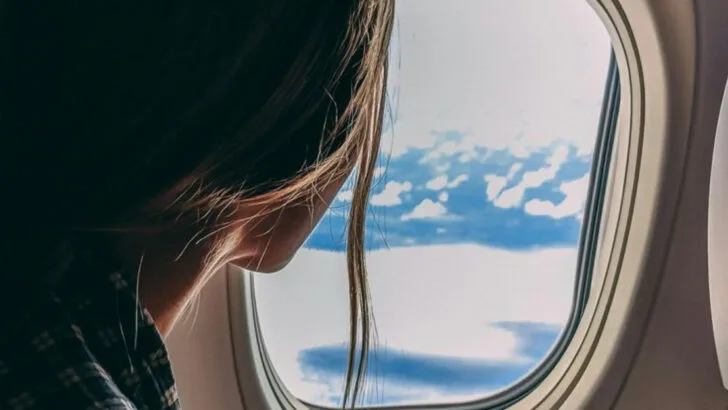Long flights don’t have to mean tired eyes and groggy mornings. With expert advice from seasoned travelers, you can turn jet lag into just a minor hiccup and start your adventures feeling refreshed and energized.
Discover simple yet effective strategies that make crossing time zones a breeze, from adjusting your sleep schedule to staying hydrated and active on the plane. These tips help ensure your trip begins on the right note, letting your family or personal journey be exciting and effortless.
Adjust your sleep schedule before departure
Your body’s internal clock doesn’t automatically reset with a time zone change. Gradually adjusting your sleep schedule a few days before departure can ease the transition. Shift your bedtime by an hour or two towards the destination’s time zone. This helps your body slowly adapt, minimizing the shock of sudden change. Start this process three to four days before your trip for best results. Consider dimming lights in the evening and using blackout curtains to help your body adjust. This could make the difference between a sleepless night and a restful sleep upon arrival.
Stay hydrated during the flight
Flying dehydrates you, and dehydration worsens jet lag. Drinking water regularly during your flight keeps you hydrated, helping maintain energy levels. Bring a reusable water bottle and fill it up after security. Aim for at least eight ounces every hour. Hydration isn’t just about water; moisturizing your skin and using eye drops can prevent dryness. Avoid sugary and caffeinated drinks, as they can dehydrate you further. Remember, the dry cabin air is unforgiving, so keep sipping! Staying hydrated is a simple yet effective way to combat the fatigue that comes with long flights.
Avoid alcohol and caffeine on long trips
While a glass of wine might seem relaxing, alcohol and caffeine disrupt your sleep patterns, making jet lag worse. These substances interfere with your body’s natural rhythms, inhibiting quality rest. Opt for herbal teas or water instead, which are more conducive to relaxation and hydration. The stimulant effect of caffeine can make it even harder to fall asleep when you need to adjust to a new time zone. By steering clear of these beverages, especially during long-haul flights, you set yourself up for better rest and quicker recovery upon reaching your destination.
Move and stretch regularly on the plane
Sitting for long periods can make you feel sluggish and exacerbate jet lag symptoms. Incorporate movement and stretching into your flight routine. Simple exercises, like ankle circles and shoulder rolls, can boost circulation and energize you. Even a brief walk down the aisle helps. Aim to move every hour. These activities keep your blood flowing and reduce the risk of deep vein thrombosis. You don’t need a full workout; subtle movements are sufficient. Movement not only combats fatigue but also improves your mood, making the journey more pleasant.
Use eye masks and earplugs for better rest
Quality rest is essential in beating jet lag, and eye masks and earplugs can be your best allies. They help create a dark, quiet environment, mimicking the ideal sleep conditions at home. Cabin lights and noises can disturb your rest, so block them out to improve your sleep quality. Choose comfortable, high-quality products that fit well. These simple tools can significantly enhance your in-flight sleep, leaving you more refreshed upon arrival. Better rest means your body can adjust more quickly to the new time zone, easing the transition.
Expose yourself to natural sunlight upon arrival
Natural sunlight is a powerful tool in resetting your internal clock after a long flight. Spend time outdoors as soon as you arrive to help your body adjust to the local time. Sunlight boosts your mood and increases your alertness, aiding in the synchronization of your circadian rhythm. Aim for at least 30 minutes of exposure in the morning or early afternoon. Avoid sunglasses initially to maximize the effect. This simple practice accelerates your body’s adaptation to the new environment, reducing the symptoms of jet lag significantly.
Take short naps strategically
Napping can be tricky when combating jet lag. Short, 20-minute naps can be refreshing, but long naps may interfere with adjusting to the new time zone. If you feel overwhelmingly tired, a brief nap can recharge you without disrupting your sleep schedule. Consider setting an alarm to avoid oversleeping. Avoid napping too close to bedtime to ensure a good night’s rest. Finding the right balance helps maintain your energy levels throughout the day, making your transition smoother. Remember, moderation is key when it comes to napping during travel.
Eat light and balanced meals
Heavy meals can make you feel lethargic, particularly when flying across time zones. Opt for light, balanced meals consisting of lean proteins, whole grains, and fresh vegetables. This diet supports digestion and energy levels, helping you adjust more easily. Avoid excessive sugar and fried foods, which can lead to energy crashes. Ideally, align your meal times with the destination’s local time. This helps your body adapt to the new schedule more effectively. A mindful approach to eating can enhance your travel experience by reducing jet lag symptoms.
Use apps to track time zone adjustments
In today’s digital age, apps can be a great ally in managing jet lag. There are several apps designed to help you adjust to new time zones by providing personalized schedules. These apps suggest optimal times for sleeping, eating, and exposure to light based on your destination. By following these recommendations, you can ease your body’s transition. Choose an app that suits your travel habits and preferences. They act as a guide, helping you make informed decisions during your trip. Embracing technology can make your travel experience smoother and more enjoyable.
Limit screen time before sleeping
Screen time before bed can hinder your ability to fall asleep, especially when adjusting to a new time zone. The blue light emitted by screens interferes with your body’s production of melatonin, a hormone essential for sleep. Consider setting a screen curfew an hour before bedtime to encourage better rest. Engage in relaxing activities like reading or listening to music instead. Limiting screen exposure helps your body wind down naturally, facilitating a smoother transition. Prioritizing restful activities over screen time can greatly improve your sleep quality while traveling.

